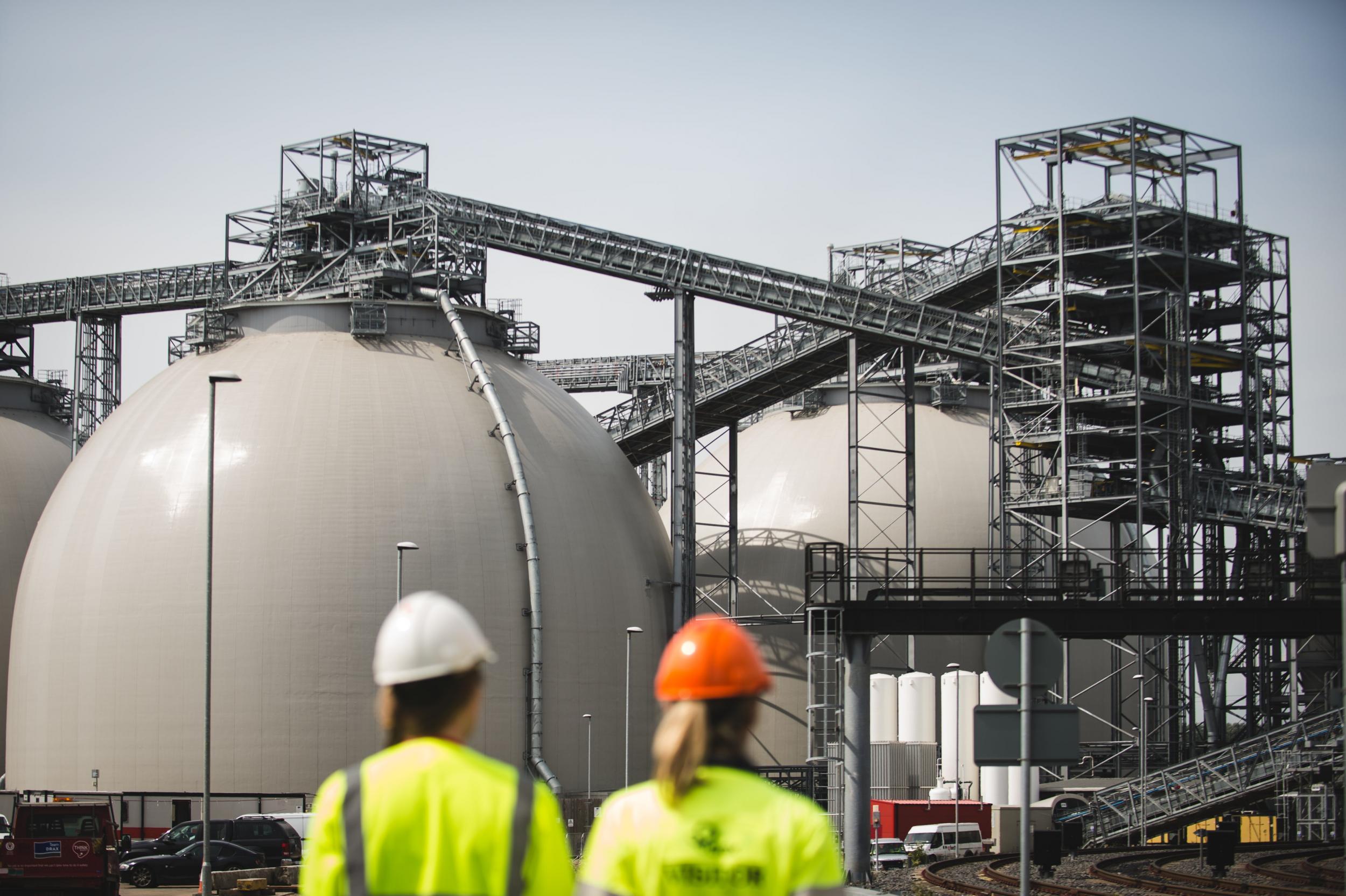Boris Johnson to laud green credentials of firm that runs ‘UK’s largest carbon emitter’
Exclusive: Drax’s Yorkshire power plant has emissions roughly equal to that of Ghana, analysis claims
The company behind a power plant accused of being Britain’s biggest carbon emitter is set to be highlighted by Boris Johnson as an example of the “best of UK innovation and green technology”, The Independent has learned.
The prime minister will this week host 200 investors at a summit featuring 12 companies that are supporting his 10-point climate plan and “helping cement the UK’s position as a science superpower and the world’s number-one centre for green technology”.
But among the companies is the Drax Group, whose taxpayer-subsidised renewable energy plant in north Yorkshire is the single largest producer of CO2 emissions in the UK, according to a recent analysis by the think tank Ember.
Critics say the government should instead be looking to put the spotlight on other British firms fighting the climate crisis.
The event on Tuesday is a key stepping stone in the run up to the Cop26 global climate summit taking place in Glasgow which begins on 31 October.
Chris Venables, head of politics at the Green Alliance think tank, said: “The evidence is now increasingly clear to us that Drax’s operations are actively undermining the UK’s climate ambitions.
“If the UK government wants to showcase the best of our green economy, there are amazing businesses, big and small, leading the charge to prevent the climate crisis that should be in the spotlight.”
The Drax plant burns wood pellets, a type of biomass, to produce electricity. Burning the wood causes CO2 to be released into the atmosphere. In 2020, Drax’s CO2 emissions from its biomass and coal operations came to 14.8 million tonnes – around the same as the annual emissions of Ghana, according to Ember.
A spokesperson for Drax disputed the findings of Ember’s analysis, describing it as “completely wrong”. The firm argues that the emissions created by burning biomass for power generation have already been accounted for by replacing the trees.
Guidelines followed by the UK dictate that any CO2 released when harvested wood is burned can be “recaptured” if new trees are put in their place. As trees grow, they absorb CO2 from the atmosphere and use it to build new shoots, roots and leaves.
But scientists and campaigners have raised concerns over whether burning wood can truly be considered sustainable.

One reason for this is that, if mature trees are felled and burned to produce power, it will take a long time for newly planted saplings to absorb the same amount of CO2 that the larger trees once stored.
Drax has also come under scrutiny for how it sources wood pellets, with the majority imported from other countries, including the US, Canada and Brazil.
Drax says the biomass it burns is “sourced from sustainably managed working forests which grow back and stay as forests”. Its wood pellets are made mostly from “by-products” of other industries such as “lumber and furniture”, it adds.
However, NGOs and campaigners have long accused Drax of sourcing its wood imports in a way that is unsustainable.
Drax is also facing criminal charges for allegedly exposing its Yorkshire workers to dangerous dust from the wood pellets.
Zoe Nicholson, a councillor for the Green Party in Lewes, said she did not see the plant as low carbon or sustainable “in any way”, adding that the government’s decision to include Drax at the Global Investment Summit showed “that it is much more interested in greenwashing for economic gain than taking real climate action”.
“For the UK government to hold Drax up to the rest of the world as a green investment opportunity shows just how badly off track the Conservatives are in the weeks running up to Cop26,” she added.
Drax said it was included in the summit for its work piloting a technology called bioenergy with carbon capture and storage (BECCS), a technique for removing CO2 from the atmosphere.
“BECCS at Drax can permanently remove eight million tonnes of CO2 from the atmosphere each year, whilst supporting the creation of a new global industry in the UK, delivering tens of thousands of jobs in a new green economy,” the spokesperson said.
The spokesperson added that Drax believed Ember’s analysis was based on “false assumptions and incorrect information” and is “not aligned with latest climate science or policies on bioenergy”.
The government did not respond to request for comment before publication.
Join our commenting forum
Join thought-provoking conversations, follow other Independent readers and see their replies
Comments
Bookmark popover
Removed from bookmarks